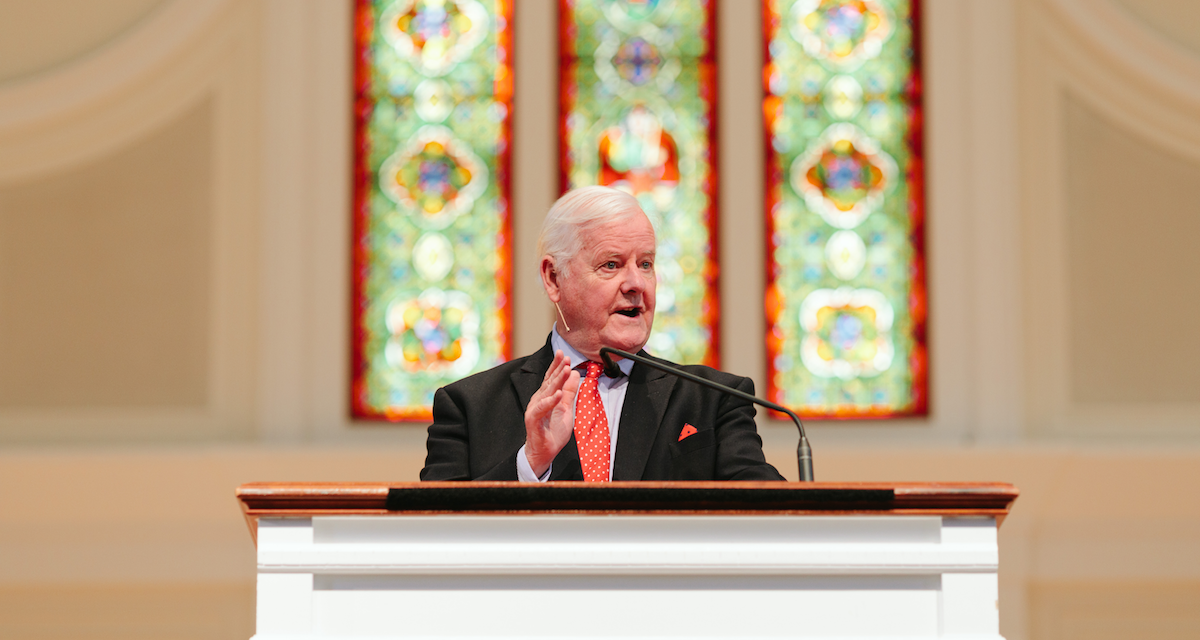Os Guinness on the Importance of Following a Covenant
This year’s speaker for the annual Richard F. Gross lecture was award-winning author and social critic Os Guinness. Guinness has been serving as one of Gordon’s visiting distinguished scholars for the 2017–17 academic year.
Speaking on the topic of “Let My People Go! The Covenant as the Missing Key to the American Crisis,” Guinness discussed the importance of a covenant, and the benefits of following one. “The great strength of a covenantal society,” Guinness said, “is the restoration of faith and freedom in a responsible way.”
He went on to describe what he believes is the current state of the Church and American society. “I suggest to you today,” he said, “that as the church itself is in deep chaos, we need to remember our history, remember our heritage, and in our marriages, in our churches, and then branching out wider, restore the understanding of a commitment to a powerful, robust sense of covenentalism.”
Guinness believes that without adhering to the past agreement, people encounter challenges, divisiveness and controversy as they are separated by foundational differences. Societal divisions, he said, stem from divisions between the church and state. In European revolutions, the people sought to overthrow churches, as well as kings, to seek freedom. However, Guinness argued that American freedom grew from a unification of church and society—but in our present society, people continue to stray further from the American Constitution, the covenant on which the U.S. was founded.
“The deepest divisions in this country,” Guinness stated, “are between the heirs and the allies of 1776 [American Revolution], and the heirs and the allies of 1789 [French revolution]. America needs to decide which freedom it wants.” Guinness expressed that these divisions can be reconciled once society realizes the freedom that has been given and learns how to respond to it. The difficulties lie in recognizing that “justice for all” means sacrificing for the greater, common good.
“That’s the challenge of freedom,” Guinness proposed. “It should be the power to do what you ought, not permission to do what you like.”
By Megan Harvey ’19, communication arts
 The Bell
The Bell